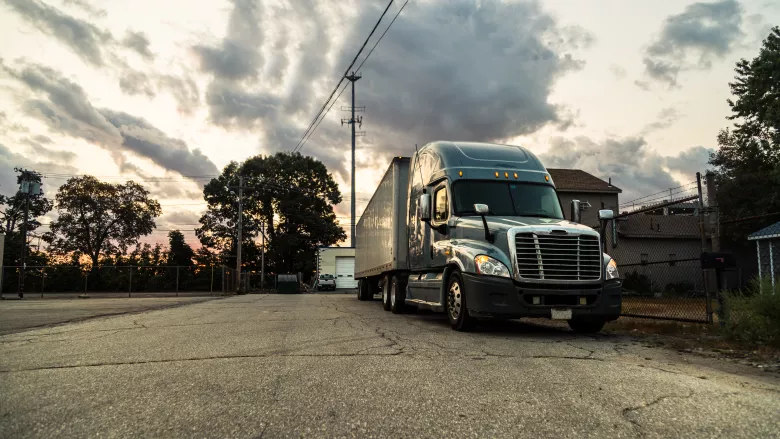How to Get a Freight Broker License in Colorado

According to the U.S. Bureau of Labor Statistics (BLS), around 95,600 freight brokers are gainfully employed across the country. In Colorado, there are no state licensing requirements. You need to be at least 18 years old to work in this part of the supply chain, and a high school diploma or GED is desirable. In addition, many logistics companies and brokerages are actively recruiting transportation intermediaries. There is a viable opportunity to start your own freight brokerage company in cities like Denver.
Working as a Freight Broker in Colorado
Obtaining your authority to operate opens many options for those seeking work in the trucking, logistics or transportation industry. A licensed freight broker can make more money than a freight broker agent, but more costs are involved. A good freight broker training program can prepare you to decide which path to take. To be considered licensed to operate in Colorado, you will need to file the correct paperwork with the relevant authorities and pay an application fee. Completing the process will get you the federal permit, which functions in lieu of a state license.
Steps to Get Your Freight Broker License in Colorado
In the state of Colorado, state licenses and certifications are not legally required to operate in the freight industry; however, a certificate of completion from one of Colorado’s freight broker schools is still an important credential. It offers assurance to your potential clients that you are credible and prepared to handle transactions with integrity. You can receive excellent agent training by enrolling in freight broker courses from a community college or online. The most recognized credential in this industry is the Certified Transportation Broker (CTB).
Step 1. Research the Freight Broker Industry of Colorado
Researching the freight broker industry will prepare you to deal with a variety of situations that may arise during your career. Online freight broker training programs offer certifications that can help you to fully understand the mechanics of operating a successful freight brokerage business. This includes the need to remain compliant with various state and federal regulations. One of your job responsibilities is to negotiate the terms of written contracts between carriers and shippers. Many people attend freight brokerage school to learn these ropes.
Step 2. Register as a Legal Business Entity
The legal structure of your business must be determined prior to registering the entity with the Secretary of State. The most common forms of brokerage are a limited liability company (LLC), a corporation or a partnership. Sole proprietorships and workers’ cooperative enterprises are also possible. Legal advice is often recommended to ensure that the legal structure is appropriate for your needs.
Step 3. Apply for USDOT and Motor Carrier Numbers
To operate as a freight broker of household goods, you need to obtain your operating authority through the U.S. Department of Transportation. To do this, go to the FMCSA website. Follow the instructions to obtain both the USDOT and Motor Carrier numbers. All intermediary service providers in the transportation industry must have a Motor Carrier number.
Step 4. Obtain a Surety Bond or Trust Fund
The next step is to obtain a surety bond by filling out form BMC-84. Alternatively, you may also obtain a trust fund agreement, or form BMC-85. The surety bond must be valued at $75,000 or more. However, you will only have to pay a small percentage of the bond amount, usually around 1% to 3% of the total. A good credit score lowers the percentage. A bonding company can issue the surety bond, and a trust fund can be arranged by any financial institution.
Step 5. Designate a Process Agent
A process agent does not deal with shippers, the load board or pricing. The designated process agent only functions as your legal representative in the event of a dispute. This agent is also the only person capable of filing the Form BOC-3 with FMCSA on behalf of the applicant. Keep a copy at your business location.
Step 6. Obtain Liability and Cargo Insurance
To operate in Colorado, you should have an adequate general liability policy that covers cargo. Keep a copy of this insurance policy at your place of business.
Requirements for Becoming a Freight Broker in Colorado
Colorado law does not issue state licenses to operate as a freight broker in the transportation industry. However, anyone seeking to obtain their broker authority in this state must apply for a permit with the Federal Motor Carrier Safety Administration (FMCSA).
The following requirements must be met in order to obtain a permit to operate as a freight broker of property:
- First-time applicants must apply to get a USDOT number via FMCSA's Unified Registration System, or URS.
- Obtain a surety bond (form BMC-84); it must be in the amount of $75,000 or more. Another option is the trust fund agreement, or form BMC-85.
- Appoint a process agent who will file form BOC-3 with the FMCSA.
- Pay the application fee of $300 and expect the permit to arrive in four to six weeks.
These bureaucratic hurdles can seem intimidating at first, but familiarity with the rules in this state will help you to navigate the requirements. This includes insurance, form filing requirements and the freight broker bond obligations. Completing this process is your first step to establishing or expanding a compliant freight broker business in Colorado.
What Is the Expense of Becoming a Freight Broker in Colorado?
Some costs associated with becoming a freight broker are fixed; however, items like the surety bond cost depend on the applicant’s credit score, business history, financial documents and other variables.
| Freight Broker Training Program | $500 to $1,500 or more, depending on the program. |
| Certified Transportation Broker (CTB) exam |
$1,050 for members $1,350 for non-members |
| FMCSA application fee | $300 |
| Business filing fee | $150 |
| Surety bond | 1-3% of the $75,000 bond amount; determined by credit score. |
| General liability and cargo insurance | Apply for a quote. |
FAQs
How Long Does It Take to Complete the Freight Broker License Application Process?
The Department of Transportation requires applicants to pay a $300 application fee. If you pay this amount and submit all the correct forms, the application processing time should take between four and six weeks. First-time applicants must file through the Unified Registration System (URS).
What Happens If Your Freight Broker License Application Is Denied?
If your application is denied, correct any issues before applying again.
How Long Is the Freight Broker License Valid For?
The FMCSA permit lasts for two years. You must complete a biennial update to avoid having your USDOT number deactivated. Civil fines up to $10,000 may be imposed for failure to update. In addition, you must update your records any time you change your business name, address or other details.
- Fast and Secure Application
- Nationwide Coverage
- Approval in Minutes
- Money Back Guarantee
Recommended Articles
- Fast and Secure Application
- Nationwide Coverage
- Approval in Minutes
- Money Back Guarantee
- Image

- Image

- Image

Lance Surety Bond Associates, Inc. is a surety bond agency based out of southeastern Pennsylvania that is able to write all surety bond types in all 50 states. We are dedicated to servicing all of our customers' surety bonding needs throughout the country and guarantee competitive rates, timely responses, and unparalleled customer service.







